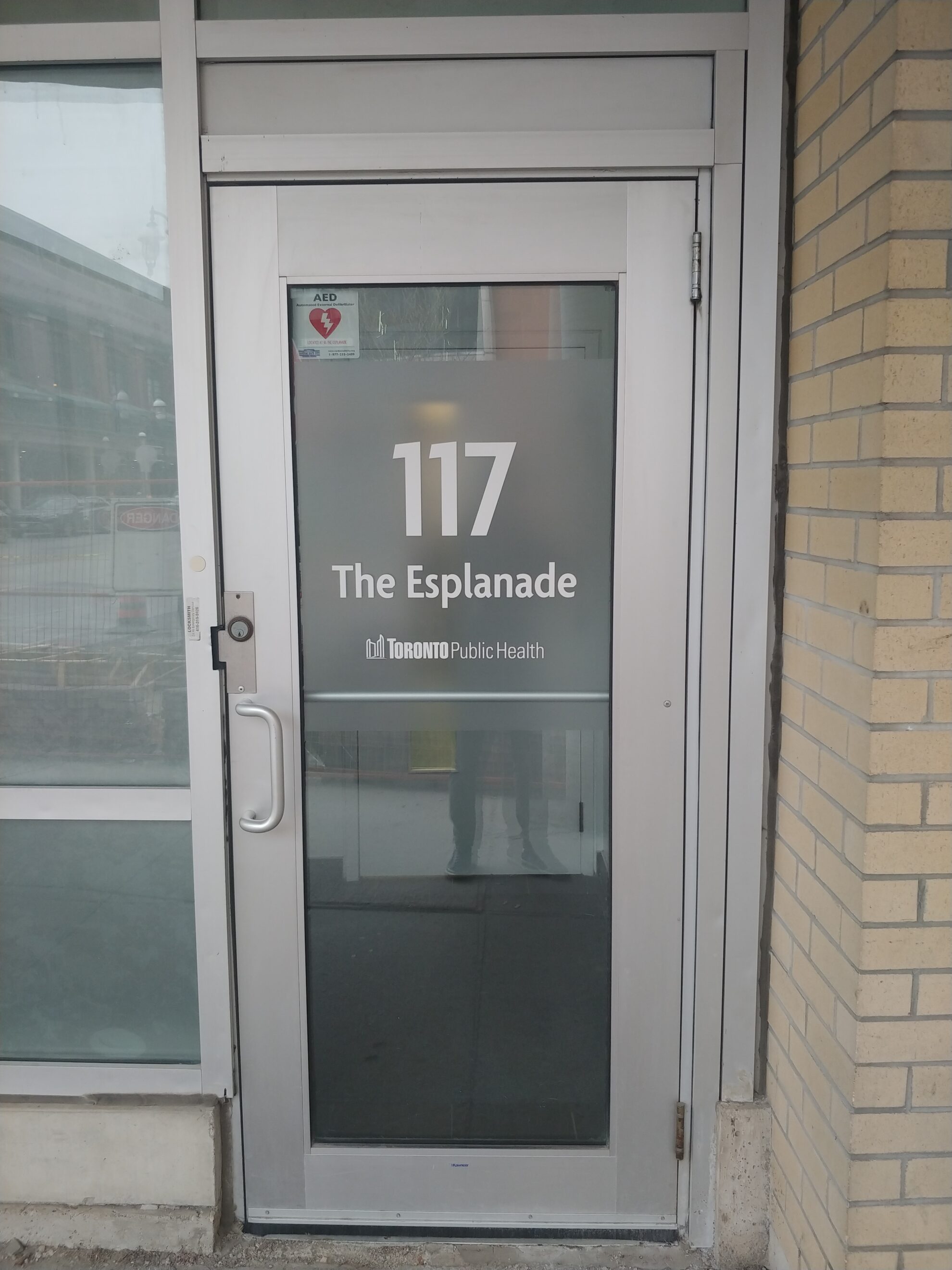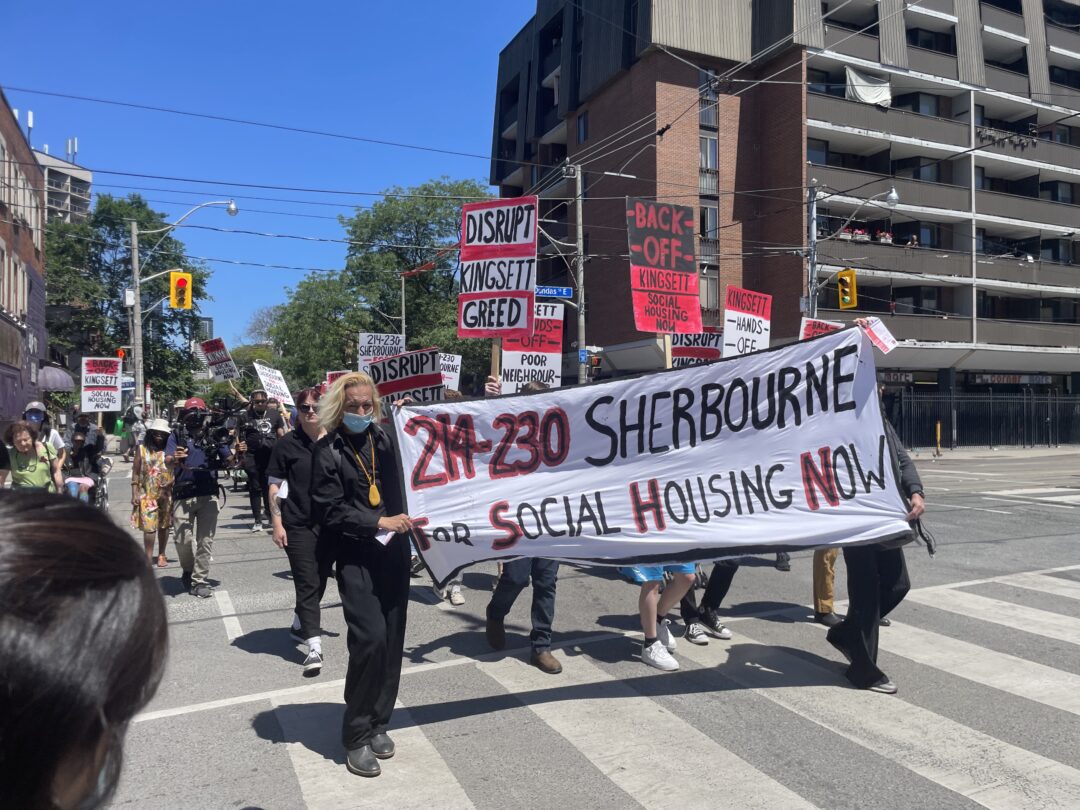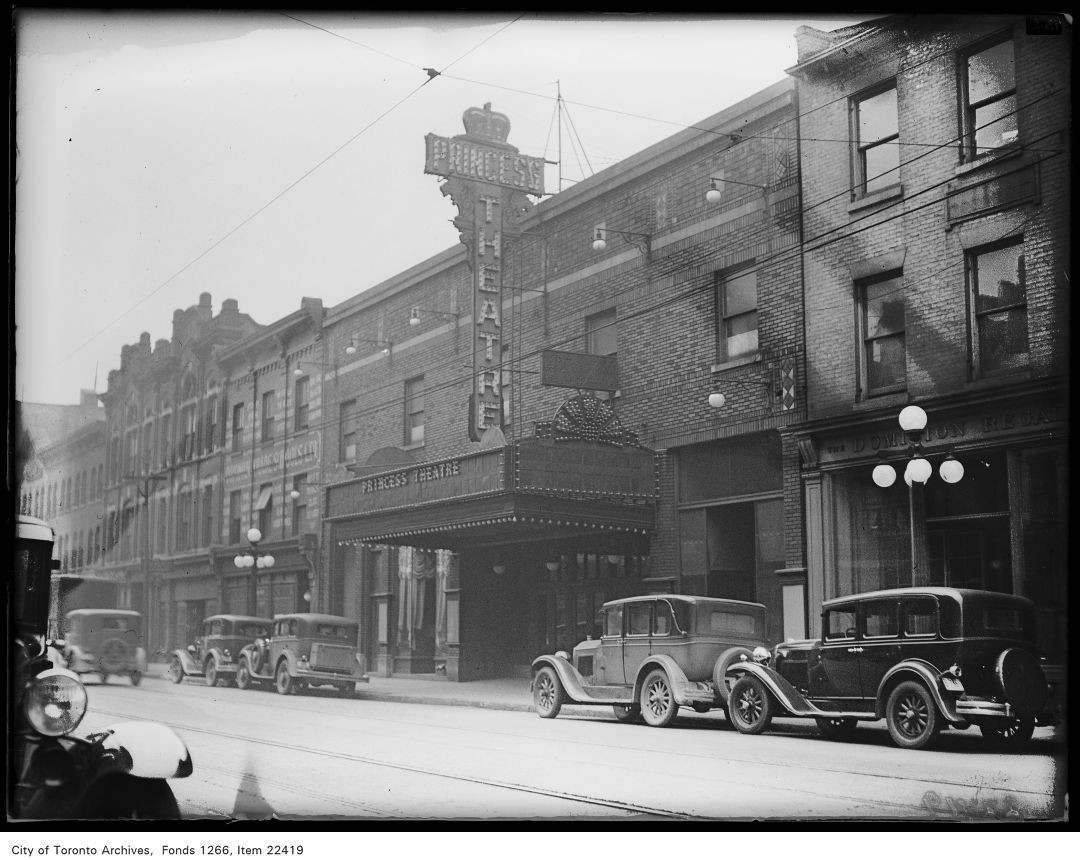Andre Bermon –
A new Toronto Public Health facility on the corner of The Esplanade and Market Street came as a surprise to the local community. Residents at the OWN Housing Co-op, a senior’s residence of the Older Women’s Network, say the city left them in the dark about its decision to install a rehabilitation clinic in their ground-floor space.
The clinic opened on April 1. Residents discovered it days later when security guards and clients began accessing the space just steps from their lobby.
Nancy Bokma, a resident of the co-op, told the bridge she found out about the clinic on Facebook. Questioning the online post, she investigated and learned the clinic had indeed been installed. She then called her neighbours and staged a protest outside the co-op.
“We were very up in arms about what’s going on,” said Bokma. Fellow residents at the protest told City News on April 7 they believed the clinic was a supervised injection site and that the city had provided no information on it.
Bokma said misinformation about the facility evoked traumatic memories from when The Esplanade Novatel was turned into an emergency homeless shelter during the Covid-19 pandemic. Incidents of anti-social behaviour and petty crime in the neighbourhood increased when the shelter was operating.
According to Toronto Public Health, the clinic is not a supervised injection site, but a temporary rehab service delivering some of the province’s new Homeless & Addiction Recovery Treatment (HART) Hub programming. Five HART Hubs have been approved in Toronto, including a permanent replacement of Toronto Public Health’s supervised injection site, known formerly as The Works, in a new facility (location undisclosed) being renovated.
To provide ongoing care, the city established the rehab clinic on The Esplanade in a space already owned by the municipality, previously a storage space for the St. Lawrence Market.
In an email statement to the bridge, public health said the clinic is not a drop-in centre, meaning clients need to book an appointment to enter the facility. Services are geared towards opioid addiction medication, such as methadone, which is administered on-site by trained medical professionals. No medications can leave the clinic, and on-site security will monitor activities during operational hours, said the public health spokesperson.
“If it’s harmless as they say, then why would they cover up [by] not telling us,” said Bokma. “It doesn’t make sense.”
On March 31, a day before the clinic was scheduled to open, the OWN co-op hosted a general members meeting. A staffer of Ward 10 (Spadina-Fort York) Councillor Ausma Malik attended, and flyers from her office were distributed detailing the city’s plans to “enhance services in the St. Lawrence neighbourhood.”
Not mentioned in the list was The Esplanade rehab clinic. Residents who spoke to the bridge recalled no information at the meeting, either written or verbal, about the clinic.
Ward 13 Toronto Centre Councillor Chris Moise, who chairs the city’s Board of Health, said public health staff were ordered to engage with the community and that he was given a list of organizations consulted. One group that met city staff on March 28 was the co-op’s board.
Asked why the clinic was not mentioned to residents at the co-op’s general meeting, even by Councillor Malik’s staffer, Moise said it’s the board’s responsibility to relay important information to their membership.
“We cannot dictate to a board how they interact with their members. We can only do so much,” said Moise.
OWN resident Helen Melbourne said the two downtown councillors or their staffers should have explained the situation in an open and transparent manner.
“The board was really intimidated by the situation,” Melbourne said. Installation of the clinic “was a done deal” and the board was unprepared to handle fallout from such unwelcome news.
“Not everyone has the experience in being tough enough to deal with chairing a meeting, and [most boards] don’t have any training. That puts [them] in a very difficult spot,” said Melbourne.
“So, my suspicion is that [the board] was too afraid to say anything.” The councillor’s assistant should have said something, “and he didn’t,” Melbourne added. “The whole process is flawed.”
Asked why her office did not consult co-op residents, Councillor Malik responded in a statement, “Due to changes in provincial legislation, supervised consumption services are being forcibly closed in the downtown core… As a result of these closures, I worked proactively with city staff to reinforce outreach, cleaning and monitoring supports in the area… My office will receive regular updates from city staff as they monitor these services so we can ensure they are meeting the needs of our community.”
The OWN Co-op board did not comment for this story.





2 Comments
As usual, the City is loathe to communicate responsibly to the citizens. And it appears since this was written, people waiting for their appointments with the clinic have been found waiting in the OWN Lobby.
Even though OWN has posted a notice pointing to the direction of the clinic, people still try to enter the OWN lobby and one was found sleeping in entryway where the Police had to remove him. There are also photos of needles found at the base of the trees on The Esplanade in this area.
Where is the safety built in that the citizens were promised from the government? This is afterall a neighbourhood of senior and disabled citizens.
The government needs to step upto the plate and take their responsibility seriously and co-op boards need to be equally responsible and transparent to their members or resign and hire outside qualified board members to handle the serious issues that the government pushes on these residents.
This is a very disappointing development. There are senior citizens and families in the host building, and they are finding needles and debris, and clients have been lying inside both the inner and outer lobbies. Obviously the clients need help, but why does the City think this is a good mix? Why does the City think it can ride roughshod over co-op members? Another point is the area attracts visitors to Toronto. St. Lawrence Market is just across the street. Not exactly a good look.